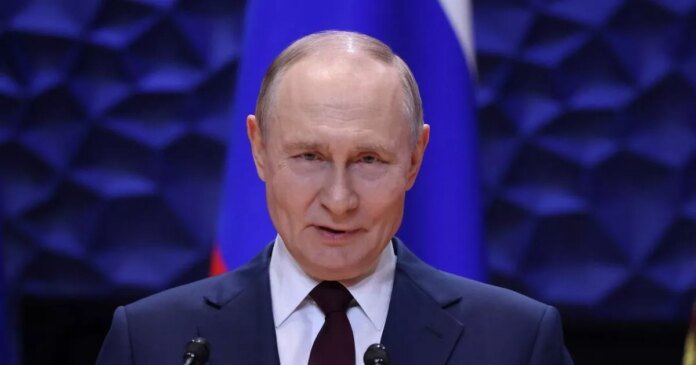German intelligence has revealed information indicating that the Kremlin is deliberating an assault on NATO, according to a senior EU defense official. Andrius Kubilius, the European Commissioner for Defense and Space, emphasized the need for Europe to be prepared to safeguard itself against potential Russian threats, drawing inspiration from Ukraine’s tactics regarding drones.
In an interview with the Polish daily, Wyborcza, Kubilius stressed the importance of taking seriously the signals indicating a potential attack on NATO, as suggested by German intelligence. He urged readiness for conflict and highlighted the significance of learning from both Ukrainian and Russian experiences.
This revelation comes amidst escalating tensions between Russia and Western nations, with accusations exchanged between Putin and Trump regarding the military capabilities of NATO and Russia. Putin criticized NATO allies for stoking fears of an impending attack on a member state, alleging that the alliance was providing support to Ukraine in terms of weaponry, intelligence, and training.
Putin, in response to the escalating rhetoric, warned any potential competitors in the military arena to proceed with caution, asserting that Russia would swiftly respond to any challenges. Trump also weighed in on the situation, questioning the efficiency of Russia’s prolonged conflict with Ukraine.
Amidst the verbal sparring, there have been increasing instances of airspace violations in NATO countries, potentially linked to Russia. Some experts speculate that these actions could be Russia’s way of testing NATO’s responsiveness. Notably, a recent incident involved Russian drones breaching Poland’s airspace, prompting NATO aircraft to intercept and neutralize some of the intruding devices.
This event marked a direct encounter between NATO and Russia since Putin’s declaration of war on Ukraine earlier in the year. Furthermore, Russian warplanes were intercepted in Estonian airspace by NATO jets, while reports of flyovers near critical infrastructure across Europe have raised concerns.
Despite these actions, Russia has denied any deliberate misconduct or involvement in these incidents. European authorities have been cautious in disclosing detailed accounts of the drone intrusions, with some delays in acknowledging the overflights publicly.
